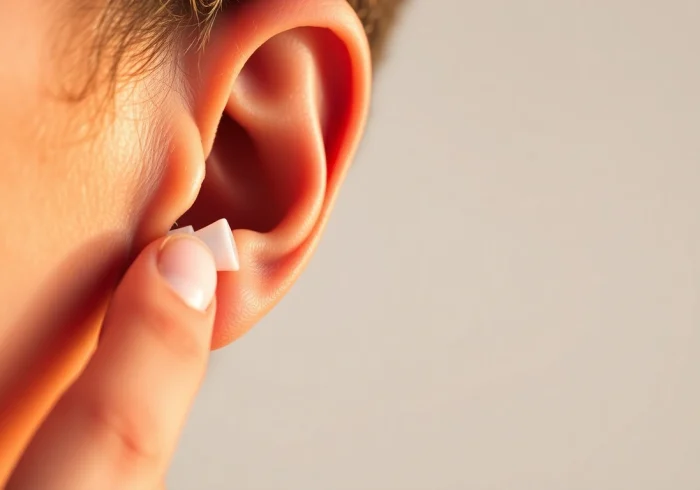Understanding Anxiety and Its Impact
Anxiety is a common yet complex mental health condition that affects millions of people worldwide. In a fast-paced and often overwhelming world, feelings of anxiety can become more prevalent, leading to disruptions in daily life. Understanding the mechanics of dealing with anxiety is crucial for fostering mental well-being and resilience. This article delves into the definitions, symptoms, causes, and importance of acknowledging anxiety, exploring practical techniques for coping and transforming your mental health.
Definition of Anxiety and Its Symptoms
Anxiety is typically characterized by excessive worry or fear about everyday situations. According to the American Psychiatric Association, anxiety disorders represent a group of conditions that cause significant distress. Symptoms can manifest physically and emotionally, including:
- Restlessness
- Rapid heart rate
- Trembling or shaking
- Persistent worry
- Fatigue
- Difficulty concentrating
- Sleep disturbances
For many, anxiety can morph into chronic conditions that impact relationships, work performance, and general quality of life. Awareness of these symptoms is crucial for both individuals and their surroundings.
Common Causes and Triggers of Anxiety
Anxiety can stem from various sources, making it a multifaceted issue. Some common causes include:
- Genetic predisposition: A family history of anxiety disorders may increase susceptibility.
- Environmental factors: Trauma, abuse, and significant life changes can trigger anxiety responses.
- Brain chemistry: Neurotransmitter imbalances may play a role in anxiety disorders.
- Stress: Chronic stress from work, relationships, or other factors can exacerbate anxiety symptoms.
Understanding these causes is essential for guiding treatment and self-help strategies. Identifying individual triggers can help in addressing anxiety more effectively.
The Importance of Acknowledging Your Feelings
Acknowledgment of anxiety is the first major step in combating it. Many people feel ashamed or embarrassed by their anxiety, which can lead to avoidance behaviors. By recognizing and admitting these feelings, individuals can foster a more profound understanding that paves the way for healing. This acknowledgment should involve engaging with mental health resources and seeking professional assistance when needed.
Practical Techniques for Dealing with Anxiety
Implementing practical techniques can significantly assist in managing anxiety on a day-to-day basis. Below are some highly effective strategies that individuals can adopt.
Mindfulness and Relaxation Techniques
Mindfulness involves focusing on the present moment without judgment. This practice has been shown to lower anxiety levels and increase feelings of well-being. Some techniques include:
- Breathing exercises: Simple deep-breathing techniques can quickly alleviate symptoms of anxiety by reducing physical tension.
- Meditation: Regular meditation can deepen self-awareness and provide coping skills for anxiety.
- Visualization: Imagining tranquil scenarios can help distract from anxious thoughts.
- Yoga: Combines physical movement with mindfulness, improving overall mental health.
Incorporating these practices into a daily routine can significantly impact coping mechanisms and reduce anxiety levels.
Physical Activity and Its Benefits
Engaging in physical activity has numerous mental health benefits. Regular exercise not only improves physical fitness but also boosts mood and reduces stress levels. Activities such as:
- Aerobic exercises: Running, swimming, or cycling can release endorphins, often referred to as “feel-good” hormones.
- Strength training: Building strength can enhance self-esteem and body image, further mitigating feelings of anxiety.
- Group sports: Playing in a team can foster social connections, providing emotional support and reducing feelings of isolation.
Establishing a regular exercise routine can serve as a powerful tool in managing anxiety effectively.
Establishing a Routine for Better Mental Health
Creating a structured daily schedule helps alleviate anxiety by instilling a sense of predictability and control. Key components for an effective routine include:
- Consistent sleep patterns: Ensuring sufficient and regular sleep is vital for mental well-being.
- Nutritious diet: Consuming a balanced diet rich in nutrients can positively influence mood and energy levels.
- Setting daily goals: Accomplishing small tasks can build a sense of achievement, gradually reducing anxiety.
By implementing these routine elements, individuals can reduce their overall anxiety and promote a healthier mental state.
Professional Help: When to Seek Assistance
Understanding when to seek professional help is pivotal for managing anxiety disorders effectively. Here are common routes for seeking help.
Types of Therapy for Managing Anxiety
Therapeutic interventions are at the core of effective anxiety management. Popular forms include:
- Cognitive Behavioral Therapy (CBT): A widely-used approach that focuses on changing negative thought patterns and behaviors.
- Exposure Therapy: Gradual exposure to anxiety triggers in a controlled environment can reduce avoidance behaviors.
- Dialectical Behavior Therapy (DBT): Combines behavioral science with mindfulness to help change contradictory thoughts and emotions.
- Acceptance and Commitment Therapy (ACT): Encourages acceptance of thoughts and feelings rather than fighting against them.
Finding the right therapist who utilizes these methods can play a crucial role in long-term management of anxiety.
Medication: Pros and Cons
For some, medication may be necessary to alleviate severe anxiety symptoms. Common types of medication include:
- Antidepressants: Often prescribed for generalized anxiety disorder (GAD), they help regulate mood.
- Benzodiazepines: Used for acute anxiety but may lead to dependency if used long-term.
- Beta-blockers: Commonly suggested for performance anxiety, these help physical symptoms like rapid heart rate.
The decision to use medication should involve careful consideration with a healthcare professional, weighing both benefits and potential side effects.
Support Groups and Community Resources
Support groups can provide a sense of belonging and understanding. Connection with others facing similar challenges is invaluable. Community resources may include:
- Peer support groups: Offering a platform for individuals to share experiences and coping strategies.
- Workshops and seminars: Many local organizations offer workshops focusing on anxiety management techniques.
- Online forums: Virtual support can be beneficial, especially for those who prefer the anonymity of discussing their feelings online.
Tapping into these resources can create a broader support network, enhancing recovery potential.
Developing Long-Term Coping Mechanisms
Beyond immediate coping strategies, developing long-term mechanisms is essential for sustained anxiety management. Here are some methods to consider.
Journaling and Self-Reflection Techniques
Journaling can be a powerful tool in understanding and processing emotions. Techniques to explore include:
- Daily logging: Keeping track of feelings and triggers can help identify patterns and understand what exacerbates anxiety.
- Gratitude journaling: Focusing on positive elements in life can shift perspectives and reduce anxiety.
- Goal setting: Writing down long and short-term goals provides direction and a sense of control.
These self-reflective practices can generate insights and promote a proactive approach to mental health.
Building a Support Network
Isolating oneself often amplifies anxiety. Therefore, a strong support network is essential for coping. Strategies to build this network include:
- Connecting with friends and family: Openly communicating your struggles can strengthen relationships and provide emotional support.
- Engaging in community activities: Participating in clubs or groups can foster new connections.
- Seeking mentorship: Finding a mentor or ally who understands your experiences can offer guidance and comfort.
This sense of community can help mitigate feelings of loneliness and provide assurance during challenging times.
Utilizing Stress Reduction Techniques
Understanding stress and its relation to anxiety can enhance coping effectiveness. Some techniques to consider include:
- Progressive muscle relaxation: Systematically tensing and relaxing each muscle group to alleviate physical tension.
- Aromatherapy: Using essential oils to promote calmness can be an effective supplement to traditional methods.
- Mindful walks: Combining physical activity with mindfulness can ground thoughts and promote clarity.
Incorporating these techniques into daily life can provide consistent support against anxiety symptoms.
Resources for Further Support
Accessing additional resources can greatly enhance the process of dealing with anxiety. Below are some recommended materials and tools.
Books and Online Materials on Dealing with Anxiety
A wealth of literature exists on managing anxiety. Consider books that offer insights into self-help techniques and personal stories, such as:
- The Anxiety and Phobia Workbook by Edmund J. Bourne
- Feeling Good: The New Mood Therapy by David D. Burns
- The Gifts of Imperfection by Brené Brown
Online articles, blogs, and videos can also provide an ongoing source of encouragement and strategies.
Apps and Tools for Anxiety Management
Technology can serve as a helpful ally in managing anxiety. Some recommended apps include:
- Headspace: Offers guided meditations and mindfulness exercises.
- Calm: Provides relaxation techniques through soothing sounds and visualizations.
- Woebot: A chatbot offering cognitive-behavioral therapy techniques in a conversational format.
These tools can make anxiety management more accessible and personalized.
Connecting with Mental Health Professionals
Finding qualified mental health professionals is essential for effective treatment. Resources include:
- Therapist directories: Many online directories connect users with local therapists specializing in anxiety disorders.
- Telehealth services: Platforms offering virtual therapy can provide convenience and accessibility.
- University clinics: Academic institutions often have clinics where graduate students provide services under professional supervision.
Engaging with a mental health professional can empower individuals with personalized strategies tailored to their specific needs.
In conclusion, dealing with anxiety requires a multifaceted approach that encompasses both self-care practices and professional support. By comprehensively understanding anxiety, implementing practical techniques, seeking professional guidance when necessary, developing long-term coping mechanisms, and utilizing available resources, individuals can navigate their mental health journey more effectively. It is possible to transform anxiety from being a debilitating force into a manageable aspect of life.



